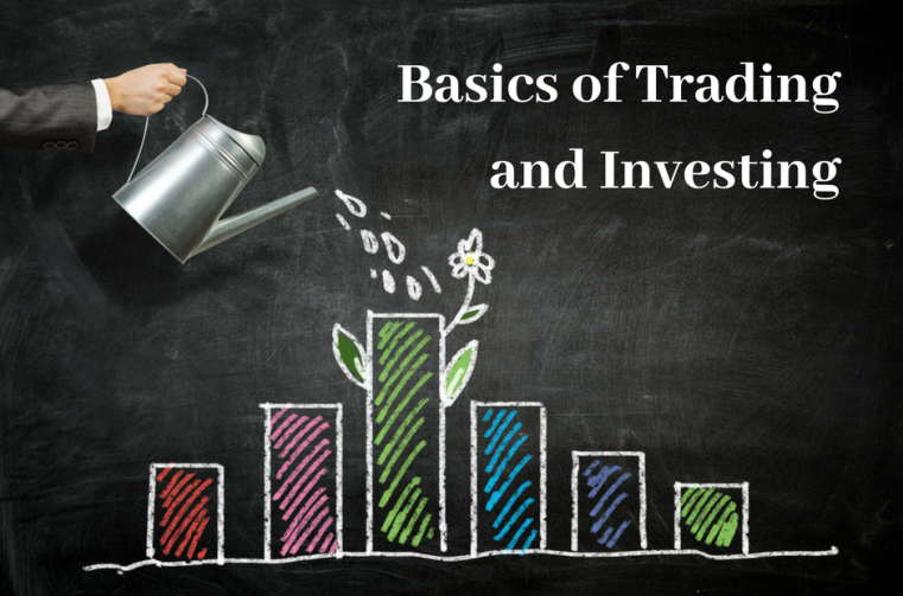Introduction
Trading in the financial markets can seem like a complex and daunting endeavor, especially for beginners. The fast-paced nature of the markets, combined with the vast array of terms and strategies, can be overwhelming. However, with the rise of online forex trading and fluctuating global economies, exemplified by events like the recent crash of the Naira, it’s more important than ever to understand the basics of trading. The ability to analyze markets, understand risk, and make informed decisions are skills that can be developed over time. This guide aims to demystify the process and provide a solid foundation for those starting their journey into the world of trading. Whether you’re interested in trading as a hobby, a secondary source of income, or as a career, learning the fundamentals is the first step towards successful market participation.

What is Trading?
Trading involves buying and selling financial instruments such as stocks, bonds, commodities, and currencies, with the aim of making a profit. In today’s digital age, this often occurs through online platforms, allowing traders to participate in global markets from virtually anywhere. This accessibility has democratized the world of trading, opening up opportunities that were once exclusive to professional traders or those with substantial capital. Trading can range from short-term day trading to longer-term investments, and it can involve a diverse range of assets, from the traditional like stocks and bonds, to the more modern like cryptocurrencies. Each market has its own characteristics and requires specific knowledge and skills, making it essential for traders to understand the nuances of the markets they choose to engage with.
Types of Markets
Stock Market: Where shares of publicly traded companies are bought and sold.
Forex Market: Involves trading currencies and is known for its high liquidity and 24/5 operating hours. Online forex trading has become particularly popular, offering access to a vast range of currency pairs.
Commodities Market: Involves trading in physical goods like gold, oil, or agricultural products.
Bond Market: Where investors trade debt securities, typically issued by governments and corporations.
Key Concepts in Trading
Long vs. Short Positions: ‘Going long’ means buying with the expectation that the asset’s price will rise, while ‘going short’ means selling with the hope of buying back at a lower price.
Leverage: Allows traders to control larger positions with a smaller amount of capital. It amplifies both gains and losses.
Margin: The amount of capital required in your account to open and maintain a leveraged position.
Stop-loss and Take-profit Orders: These are used to automatically close trades at predetermined levels to manage risk and secure profits.
Understanding Forex Trading
Online forex trading involves exchanging one currency for another. It’s characterized by:
● Currency Pairs: Including major pairs like EUR/USD, minor pairs, and exotic pairs like USD/NGN (U.S. Dollar/Nigerian Naira).
● Spread: The difference between the bid (sell) and ask (buy) price.
● Pip: The smallest price move that a given exchange rate can make, used to measure movement in the forex market.
Using Trade Calculators
Trade calculators are valuable tools for traders, especially those involved in forex trading. These calculators help in assessing potential profits, losses, and risk before executing a trade. By inputting variables such as entry and exit points, position size, and leverage, traders can better understand the potential outcomes of their trades.
To optimize your trading experience, consider utilizing a trade calculator. These tools offer comprehensive risk assessment and profit potential analysis for your forex trades. By leveraging such tools, you can make more informed decisions and effectively manage your risk.
Impact of Economic Events
Currency values can be significantly affected by economic events. For instance, the Naira’s crash demonstrates how political, economic, and social factors can influence currency markets. Traders need to stay informed about global events, economic data releases, and market trends.
Starting with Online Forex Trading
Choose a Reputable Broker: Ensure they’re regulated and offer a user-friendly platform.
Demo Account: Practice trading without risking real money.
Start Small: Begin with a small amount and gradually increase as you gain experience.
Education: Continuously learn about the forex market, technical analysis, and trading strategies.
Risk Management
Effective risk management is crucial. This involves:
● Only Investing Money You Can Afford to Lose: Don’t risk essential funds.
● Using Stop-loss Orders: To limit potential losses.
● Keeping Emotions in Check: Avoid making impulsive decisions based on fear or greed.
Developing a Trading Plan
A well-thought-out trading plan should include:
● Trading Goals: Define what you want to achieve.
● Risk Tolerance: Determine how much risk you’re willing to take.
● Trading Strategy: Decide on the approach you’ll use to select, execute, and manage trades.
● Performance Review: Regularly assess your trades to learn and adjust your strategy.
Conclusion
Trading, particularly online forex trading, offers exciting opportunities but comes with its share of risks. Understanding the basics, staying informed about market conditions (like the Naira’s movements), and practicing sound risk management can set the foundation for a successful trading journey. Remember, trading requires patience, discipline, and continuous learning to navigate the ever-changing financial markets effectively.







